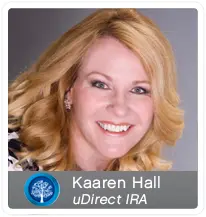The Responsibilities You Assume When You Self-Direct
When it comes to self-directed IRAs there are many unusual expectations each account-holder should have about the responsibilities involved. I say unusual because in typical investing these responsibilities do not arise.
For example, when you are investing your own private funds you don’t have to think about who you are investing with or who may benefit from the investment. With a self-directed IRA certain people are “prohibited” and cannot benefit. Prohibited (or disallowed) people include lineal ascendants and descendants plus any fiduciary or someone providing services to the plan. This means that your IRA could buy a rental property but your son (lineal descendant) could never have any personal use of the property. Similarly your IRA could not buy or sell an asset to/from a disallowed person.
To take it a step further, one of these disallowed people could not provide “goods, services or facilities to the plan”. So say your IRA is investing in real estate. Your son is a realtor. Your son is disallowed to your IRA so he could not act as a buyer’s agent, listing agent, etc. even if his services are provided at no cost because he is disallowed to the IRA. You just don’t have that kind of restriction with personal cash.
It is equally important to understand that with a self-directed IRA you are completely responsible to investigate the possible risk and to make sure that your investment does not violate any of the prohibited transaction rules (IRC 4975).
With a self-directed IRA you do all the due diligence and make all the investment decisions. Your self-directed IRA company does not provide legal or financial advice so you must get this advice from a lawyer or tax expert where that advice is needed.
With a typical IRA invested in the stock market you are working with a licensed advisor who has familiarized themself with your financial status and is legally allowed to hold themself out as someone who can offer financial advice. With a self-directed IRA YOU fill that advisory role for yourself. Now you are held to a degree of accountability to make sure you are making a sound investment.
There is case after case where IRA holders lost self-directed IRA funds to fraud and tried to come after the account’s custodian for remedy without success. In Mandelbaum v. Fiserv the case was dismissed in 2010 by the U.S. District Court in Colorado when IRA Holders invested with Bernie Madoff and lost their funds. They tried to come after the custodian of the self-directed IRAs but the court found that “The various IRA Agreements contain clearly-stated and explicit provisions that indemnify the Trustee Defendants from liability resulting from any claims arising from the accounts at issue”.
In an appeal from the Circuit Court of Cook County in June of 2012 the court gave the opinion that the “Defendant bank owed plaintiffs no fiduciary duty as trustee to investigate and verify the true value of a third-party investment fund, later alleged to be a “Ponzi” scheme, where the individual retirement account agreement between the bank and plaintiffs expressly released the bank from liability for any losses and stated the bank had no duty to investigate the actual market value of plaintiffs’ investments in the fund”.
Self-directed IRA companies don’t provide financial or investment advice. They don’t endorse any particular investment and they aren’t to blame if the investment turns out to be unprofitable or a total loss. This is why it is so very crucial for a self-directed IRA holder to understand their responsibilities and do the due diligence on their investments before they self-direct. There are groups out there to assist you with this due diligence like the Securities and Exchange Commission, The American Association of Retired Persons, The North American Securities Administrators’ Association and The North American Securities Administrators’ Association to name a few.

